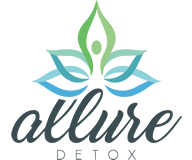Is It Safe to Drink Coffee While Taking Adderall?
January 29th, 2022Whether you've just started taking Adderall or if you've been taking it for some time, you may be wondering if it's safe to take Adderall and coffee simultaneously.
 Recognized for excellence in substance abuse and behavioral health treatment by the Joint Commission
Recognized for excellence in substance abuse and behavioral health treatment by the Joint Commission Mental health is “a state of well-being in which the individual realizes his or her own abilities, can cope with the normal stresses of life, can work productively and fruitfully, and is able to make a contribution to his or her community.”
Whether you've just started taking Adderall or if you've been taking it for some time, you may be wondering if it's safe to take Adderall and coffee simultaneously.
Stimulants can help those with anxiety stay calm, so is it true that you can take this anxiety medicine (stimulants) to help you with focus?
If you’re considering going through alcohol detox at home, there are some ways to ease mild alcoholism-related withdrawal symptoms.
One of the most common combinations of drugs is uppers and downers especially cocaine and benzodiazepines or benzos which is a very dangerous mix.
If you or a loved one suffer from both insomnia and anxiety and want relief, there is hope as there is a medication that can help with both.
Ritalin is a stimulant that is used to help people suffering from ADHD. Can it do other things like helping someone with anxiety?
Our teachers help us when we are in need of an education, but who do they turn to when they need help with substance abuse?
Yes, people have died as a result of withdrawal complications from extended use of benzodiazepines. Benzodiazepines are a class of sedative drugs normally prescribed for the treatment of insomnia, anxiety, panic attacks and a host of mental health conditions.
A false positive means that the test has detected the presence of these substances in your body when you haven’t taken them.
The first danger of snorting Valium is becoming strongly and quickly addicted as it rushes through the nasal passage, causing an intense high.
Under the right circumstances, however, it’s possible to have a fulfilling romantic relationship with someone in recovery from addiction to alcohol or drugs.
Because detoxing from codeine varies from person to person, it is never suggested to detox at home or alone. Medical supervision should be sought out when detoxing from codeine or any other substance.
Just like every drug, coming off meth can bring on withdrawal symptoms which can include paranoia and delusional thoughts.
Ketamine withdrawal leads to a variety of unpleasant symptoms and detoxing can be very difficult. Get help with ketamine addiction and start the recovery process.
Benzodiazepine detox programs utilize a combination of non-narcotic prescription medication like propranolol along with over-the-counter medication.
After you have become sober and are in recovery staying away from drugs can be hard. What are some alternatives to taking drugs?
Regular exercise can reduce stress, increase self-confidence, improve both physical and mental health, but can you exercise during the drug detox process?
One uncomfortable symptom of benzo withdrawal is hand tremors and sometimes you won’t even know you are detoxing until suddenly your hands start to shake uncontrollably.
Medical Disclaimer
This website's material, such as text, graphics, photos, and other information, is for informative purposes only. You should never disregard expert medical guidance or put off getting it because of anything you've read on this website. Always seek the guidance of a physician or other qualified health care provider if you have any concerns regarding an illness. If you have a medical emergency, call a physician or 911 immediately. This website does not recommend any specific tests, physicians, treatments, procedures, opinions, or other information discussed on the website. All information on this website is for educational purposes only and should not be used as a replacement for professional medical diagnosis, guidance, or treatment. NPI Registry Information
Allure Detox is a Treatment Center in West Palm Beach, Florida.
